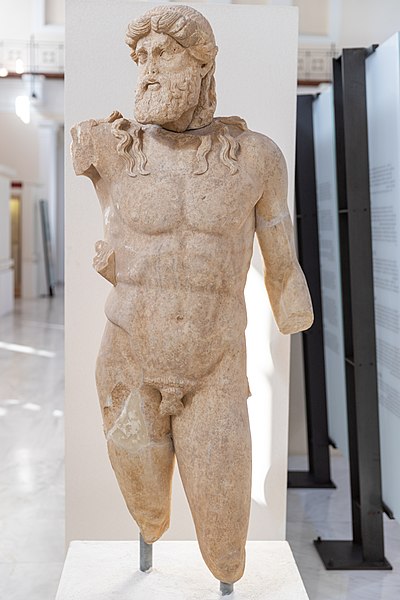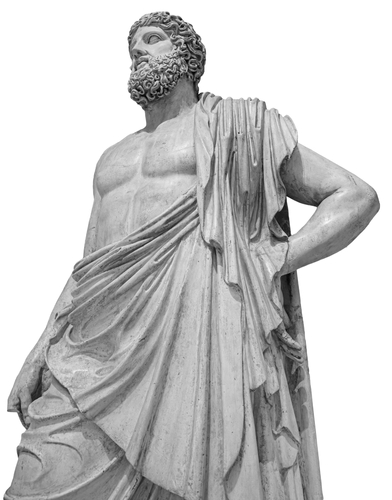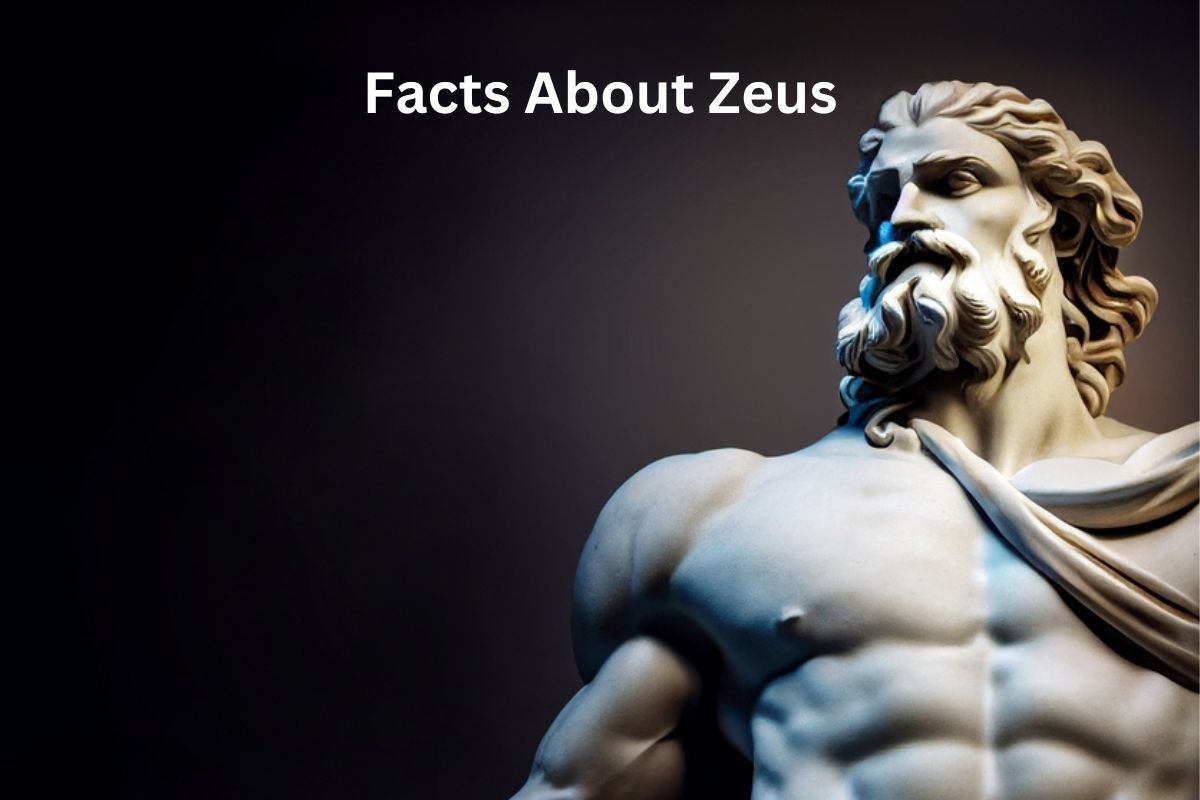Zeus, the king of the gods in Greek mythology, is a prominent figure who holds immense power and influence. Often depicted as a bearded, thunderbolt-wielding deity, Zeus rules over Mount Olympus, the dwelling place of the gods.
Born to the Titans Cronus and Rhea, he led a rebellion against his father and the Titans, establishing the reign of the Olympian gods. Zeus is associated with the sky, thunder, and lightning, symbolizing his control over natural phenomena.
Known for his numerous love affairs, Zeus had both divine and mortal partners, resulting in the birth of legendary figures. Despite being married to his sister Hera, their relationship was tumultuous.
Zeus was widely worshiped throughout ancient Greece, with temples dedicated to him and elaborate rituals performed to seek his favor. Overall, Zeus embodies the complex dynamics of power, family, and the forces of nature in Greek mythology.
Zeus Facts
1. Zeus is a major figure in Greek mythology
Zeus holds a central and prominent role in Greek mythology. He is one of the twelve Olympian gods and is revered as the most powerful among them.
Also Read: Facts About Hermes
His stories and deeds are featured in numerous myths, epic poems, and ancient texts, making him one of the most widely known figures in Greek mythology.

2. He is the king of the gods in the Greek pantheon
Among the gods and goddesses of ancient Greece, Zeus holds the highest position as the king of the gods. He presides over the divine assembly and is regarded as the ruler of both the celestial and earthly realms.
Also Read: Poseidon Facts
His authority extends over all other gods, and he is often depicted as sitting on a throne, overseeing the affairs of both gods and mortals.
3. Zeus is often depicted as a powerful, bearded man with a thunderbolt
In artistic representations, Zeus is commonly portrayed as a robust, mature man with a flowing beard and a commanding presence.
He is often shown wearing regal attire, holding a thunderbolt in his hand as a symbol of his power and control over the forces of nature, particularly lightning and storms.
This iconic imagery highlights Zeus’ role as the wielder of lightning and showcases his supreme authority and might.
4. He was born to the Titans Cronus and Rhea
According to Greek mythology, Zeus was born to Cronus and Rhea, who were Titans and the rulers of the universe before the Olympian gods. Cronus, fearful of being overthrown by his own children, devoured them as soon as they were born.
However, Rhea managed to save Zeus by tricking Cronus into swallowing a stone wrapped in swaddling clothes. Zeus was then hidden away and raised in secret until he grew strong enough to challenge and overthrow his father.
5. Zeus led a rebellion against his father and the Titans
As Zeus grew older, he confronted his father Cronus and rallied his siblings to overthrow the Titans and establish the reign of the Olympian gods.
This conflict, known as the Titanomachy, lasted ten years and resulted in the victory of Zeus and his siblings, who banished the Titans to Tartarus, the deepest part of the Underworld. Zeus emerged as the supreme ruler and became the leader of the Olympian gods.

6. He became the ruler of Mount Olympus
After their victory, Zeus and his siblings divided the universe among themselves. Zeus claimed dominion over the heavens and Earth, and his realm became the summit of Mount Olympus, the highest mountain in Greece.
Mount Olympus became the dwelling place of the gods, serving as a celestial court where the gods convened to discuss important matters, make decisions, and oversee the world and its affairs. Zeus, as the king of the gods, resided at the pinnacle of Mount Olympus, symbolizing his supreme authority and his role as the central figure in Greek mythology.
7. Zeus is associated with the sky, thunder, and lightning
Zeus is closely linked with the domain of the sky and its elemental forces. He is often portrayed as the god of thunder and lightning, wielding thunderbolts as his primary weapon.
His ability to control these natural phenomena emphasizes his power over the weather and his role as a deity who can bring both destructive storms and benevolent rains.
8. He had numerous love affairs with both goddesses and mortal women
Zeus was notorious for his amorous escapades and extramarital affairs. He was known for his attraction to both goddesses and mortal women, often resulting in the birth of many demigods and legendary figures.
His love interests ranged from nymphs and muses to queens and princesses. These affairs were a recurring theme in Greek mythology and often led to dramatic and significant events in the lives of both mortals and gods.
9. Zeus was married to his sister Hera
Despite his many extramarital affairs, Zeus was married to his sister Hera. Hera was the queen of the gods and the goddess of marriage and childbirth. Their union, however, was marked by strife and conflicts.
Hera was known for her jealousy and frequently punished Zeus’s lovers and illegitimate children.
The turbulent relationship between Zeus and Hera is a recurring theme in Greek mythology and serves as a symbol of the complex dynamics within marriage and divine power struggles.
10. He was widely worshiped and had temples dedicated to him throughout ancient Greece
Zeus was one of the most revered gods in ancient Greece, and his worship was widespread. Temples and sanctuaries dedicated to Zeus were built in various cities and regions, including the famous Temple of Zeus at Olympia, one of the Seven Wonders of the Ancient World.
These temples served as places of worship and pilgrimage, where rituals, sacrifices, and prayers were conducted to seek the favor and protection of Zeus.
Festivals and games, such as the Olympic Games, were also held in his honor, further cementing his importance in ancient Greek religious and cultural life.
